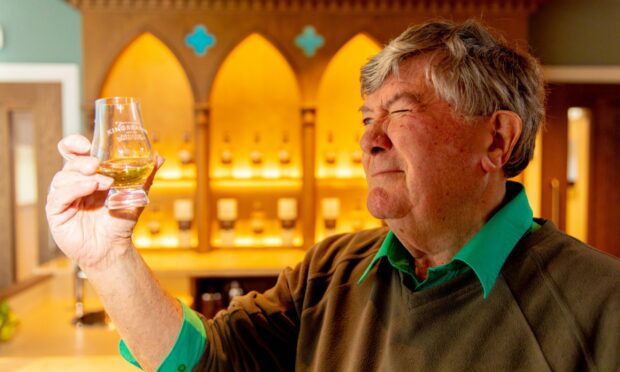Although they are vitally important to the whisky industry and wider spirits industry, grain distilleries rarely make headlines.
Yet, without them, the industry would shrink to a shadow of its former self.
Hence, the arrival of Scotland’s newest grain distillery has barely caused a ripple.
The cognoscenti tend to wax lyrical over malt whiskies, but ignore grain whiskies and distilleries, despite 80-90% of Scotch whiskies sold worldwide being blends containing 50-70% grain whisky.
One reason for this acclaim gap is, frankly, aesthetic. Most malt distilleries sit in attractive rural settings and have those eye-catching copper stills.
In contrast, grain distilleries are vast-output industrial plants which, to the untrained eye, could be oil refineries or chemical works.
Almost all single grains are – in contrast to malts – rather bland, hence few are ever bottled.
During the industry’s 1980s downturn, a score of distilleries were closed or mothballed, including the grain distilleries Cambus, Carsebridge, Caledonian, Dumbarton, Strathmore and Garnheath.
The handful of surviving grain distilleries included North British, Girvan, Invergordon, Strathclyde, Loch Lomond (which also distils malts), Cameronbridge near Leven and Port Dundas in Glasgow, though it was closed by Diageo in 2010, ironically the year French firm La Martiniquaise opened Starlaw/Glen Turner grain distillery at Bathgate.
Grain distilleries use wheat (North British uses French maize) mixed with 20% high diastase barley to create the alcoholic wash, distilled around-the-clock in column or Coffey stills, producing strong (90%-plus) spirit.
Indeed, grain distilleries generally split their output into grain whisky, which is diluted and casked, and neutral spirit used to make gin, vodka and other drinks.
The craft gin explosion means demand for neutral spirit has surged, hence the need for more grain distillery capacity. This prompted Irish distiller John Teeling to sell off his
Cooley whisky distillery and build a vast new grain distillery to sell spirit to all comers.
It may also have spurred the Jackson family, who grow wheat and barley at Charlesfield near St Boswells, to open a big new on-site grain distillery, Scotland’s first for a decade, and probably the first-ever grain distillery in the Borders. It is a venture to which one can only wish every success.

